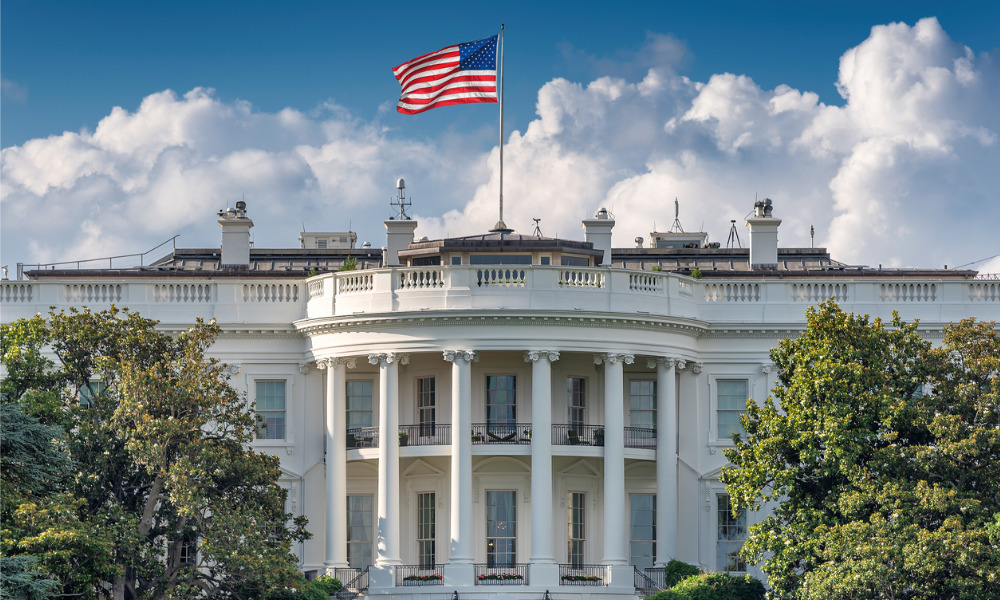MBA raises concerns while acknowledging progress in housing reform efforts

The Biden administration has unveiled a series of initiatives aimed at addressing the soaring costs of housing, including a focus on boosting supply, officials announced on Thursday.
To tackle the challenge of rising housing prices, the White House disclosed plans for multiple federal agencies to leverage government programs in incentivizing the construction of affordable rental and manufactured housing.
This comes alongside a nearly $4 million investment in research grants to explore innovative methods of increasing housing inventory, such as repurposing office spaces into residential units.
“One of the things we want to do is ensure that the American people have access to affordable rental units,” Adrianne Todman, deputy secretary of the Department of Housing and Urban Development, told MarketWatch in an interview.
Todman explained the strategy as “centered around making sure that there is affordability in a housing market for families who need it the most.”
FHA-loan risk-sharing efforts
Among the announced policies is extending a risk-sharing initiative between the Federal Housing Administration (FHA) and the Federal Financing Bank, providing funds to local housing agencies to offer FHA-insured multifamily loans at lower rates.
According to FHA projections, this extension could result in around 38,000 new housing units over the next 10 years.
“Building housing is expensive,” Todman said. “What this program will do is not necessarily make it less expensive to build the housing but allow there to be more federal resources involved in building the units, thereby making it more affordable for families to live there. From a renter’s perspective, what they will see is more units coming online in their neighborhoods, across states, and more opportunity to find a rental unit that is affordable to them.”
The administration is also working to make manufactured homes, which involves homes built off-site in factories and then transported to their final location, more accessible and affordable. According to government figures, around 22 million people currently reside in manufactured housing.
As part of the new policy, the Department of Housing and Urban Development (HUD) plans to update how it determines loan limits for the manufactured-home loan program. The aim is to make purchasing these homes feasible for more people and to encourage lenders to offer loans to interested buyers.
“Manufactured homes are an important part of the nation’s lower-cost housing stock, yet many families, especially historically underserved communities, lack access to safe and affordable financing for these homes,” said Rachel Siegel, senior officer with the nonprofit Pew Charitable Trusts’ housing-policy initiative.
Siegel hailed the announcement as a significant step toward improving financing access for thousands of American families who face challenges in today’s housing market.
In addition to these measures, the White House’s announcement included plans to ban fees like application and screening fees for government-subsidized housing vouchers. New policies will also be implemented to reduce evictions and protect renters from flawed tenant-screening reports.
Balancing affordability with consumer protections
In response to these announcements, Mortgage Bankers Association (MBA) president and CEO Bob Broeksmit praised the administration’s focus on reforms to boost housing supply and affordability, highlighting the importance of initiatives like expanding Low-Income Housing Tax Credits (LIHTC) to make a difference.
“Housing markets across the country continue to suffer from supply-demand imbalances, and we have urged the administration to take meaningful action to remove regulatory barriers that impede development,” Broeksmit said. “Some of the initiatives announced today would boost housing availability and affordability, including expanding the volume of Low-Income Housing Tax Credit (LIHTC) allocations. We urge the Senate to pass the bipartisan ‘Tax Relief for American Families and Workers Act of 2024’ (H.R. 7024) as soon as possible to produce an estimated 200,000 additional rental units over the next two years.”
Read more: Could bond yield trends hint at a more affordable housing market?
However, Broeksmit also expressed concerns about certain proposals, warning that they might undermine consumer protections and increase regulatory costs.
“MBA has significant concerns that some of the proposals on closing costs and title insurance could undermine consumer protections, increase risk, and reduce competition,” he said. “In 2015, the industry implemented final rules from the Consumer Financial Protection Bureau making comprehensive reforms to mortgage disclosures to increase clarity and transparency and to help facilitate consumer shopping. In 2020, the CFPB reviewed and praised its own rules. Suggestions that another revamp of these rules is needed depart from the legal regime created by Congress in the Dodd-Frank Act and will only increase regulatory costs and make it untenable for smaller lenders to compete.”
Stay updated with the freshest mortgage news. Get exclusive interviews, breaking news, and industry events in your inbox, and always be the first to know by subscribing to our FREE daily newsletter.



